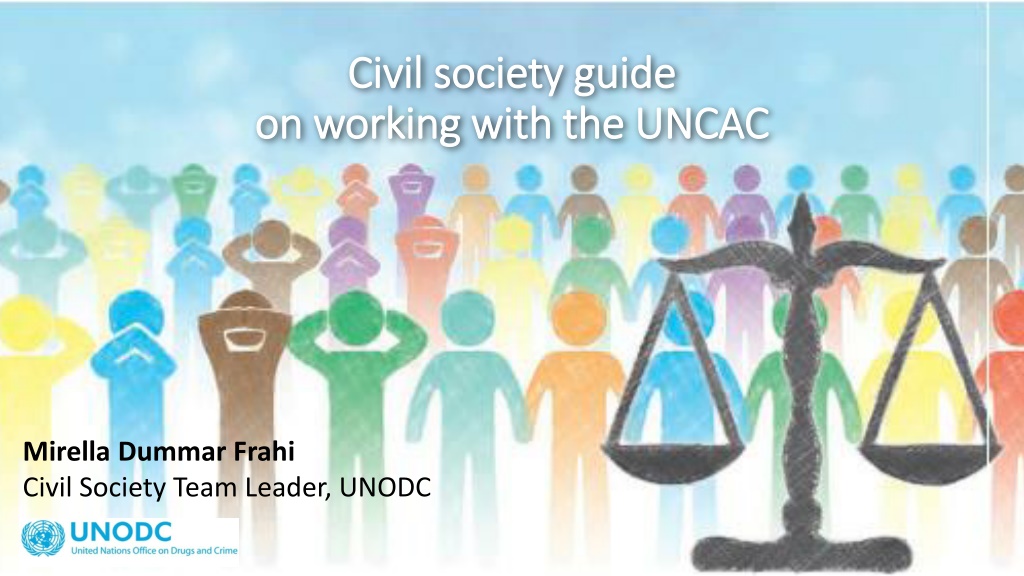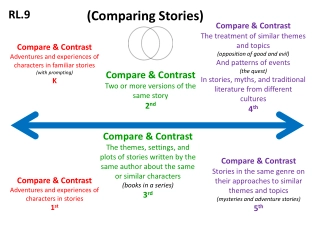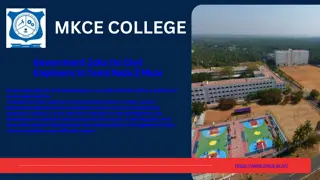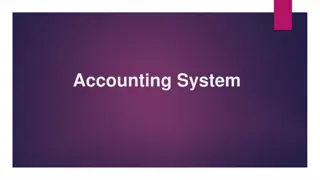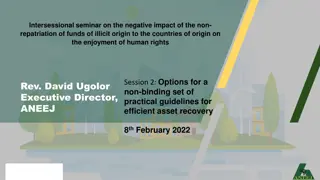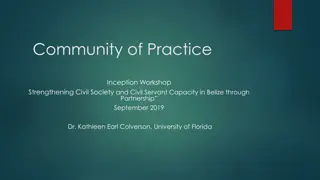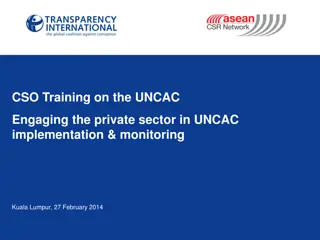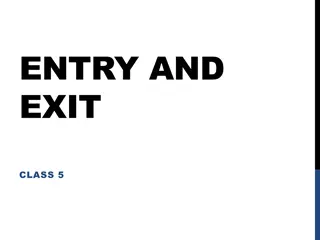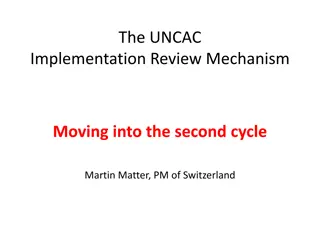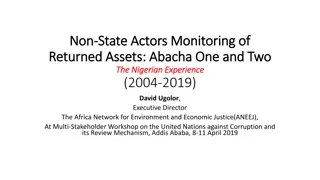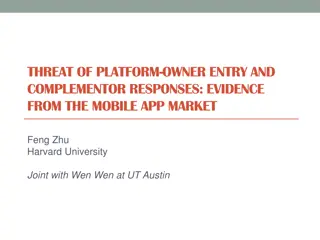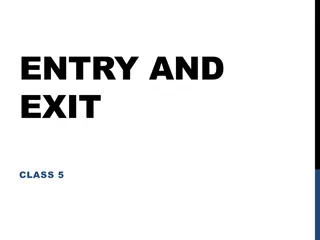Guide on Working with UNCAC for Civil Society: Entry Points and Success Stories
This guide provides entry points for Civil Society Organizations (CSOs) to engage with the UNCAC, highlighting opportunities for participation in UNCAC chapters and sharing over 70 success stories from around the world. It covers preventive measures, criminalization, law enforcement, international cooperation, asset recovery, and ways to collaborate with the private sector. CSOs can find avenues for capacity building, networking, advocating on International Anti-Corruption Day, and fundraising.
Download Presentation

Please find below an Image/Link to download the presentation.
The content on the website is provided AS IS for your information and personal use only. It may not be sold, licensed, or shared on other websites without obtaining consent from the author. Download presentation by click this link. If you encounter any issues during the download, it is possible that the publisher has removed the file from their server.
E N D
Presentation Transcript
Civil society guide Civil society guide on working with the UNCAC on working with the UNCAC Mirella Dummar Frahi Civil Society Team Leader, UNODC
The guide shows entry points for CSOs in UNCAC and its Review Mechanism Introduction to the Convention and its nexus with the Sustainable Development Goals Specific entry points for the four chapters of the UNCAC: Preventive measures, Criminalization and law enforcement, International cooperation, and Asset recovery Ways to work with the private sector Plus, general opportunities for capacity building, networking, on International Anti- Corruption Day, and fundraising
HIGHLIGHTING CIVIL SOCIETY STORIES Contains over 70 examples of CSO success stories and examples from around the world Each example listed under the specific entry points in text Copied right is the success story under the advocacy chapter. REN-LAC s advocacy work helped influence the drafting of new anti-corruption bill in 2015 in Burkina Faso
CSO Entry Points: Preventive measures (UNCAC Chapter II) Art 13 encourages civil society participation National Action Plans and Strategies (Art. 5)- the formulation and implementation. Public reporting (Art. 10) and transparency, access to information laws. Codes of conduct (Art. 8) and Public procurement (Art. 9) Integrity in the judicial system (Art. 11)
CSO Entry Points: Criminalization and Law Enforcement (Chapter III) Advocate for means to deter and punish corruption Whistleblowing and Whistleblower Protection (Art. 33) and witness protection (Art. 32) Example of TI s Advocacy and Legal Advice Centres (ALACs) providing free and confidential legal advice to witnesses and victims of corruption. Currently operating in 11 African states
CSO Entry Points: International cooperation (Chapter IV) and asset recovery (Chapter V) CSOs may assist States in: Advocacy and awareness raising on specific cases/legislation Investigation and legal action e.g. representation of victims Monitoring the use of confiscated assets
CIVIL SOCIETY INPUT Activities in the Four Chapters* 70% 60% The Civil Society Team sent a survey to over 2,500 CSOs working on anti-corruption matters to learn about their role in the implementation of the Convention. Full responses to the survey were received from 124 civil society organizations in 113 countries globally. Other inputs were collected through direct outreach, including workshops Results from a question are illustrated on the graph 50% 40% 63% 30% 20% 35% 31% 10% 17% 0% Preventive Measures Criminalization and Law enforcement International Cooperation Asset Recovery *Graph created from survey responses
Thank you for your attention! Thank you for your attention! CIVIL SOCIETY TEAM unodc-ngounit@un.org +43 1 26060 5582
